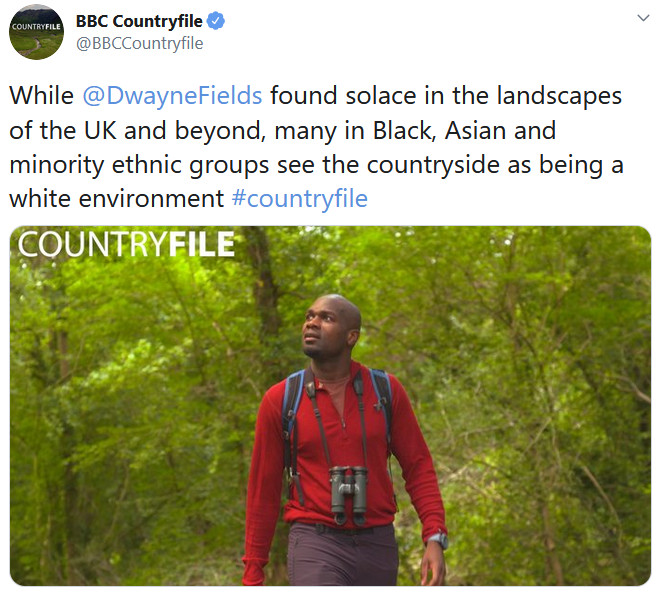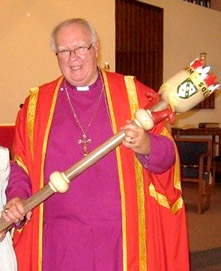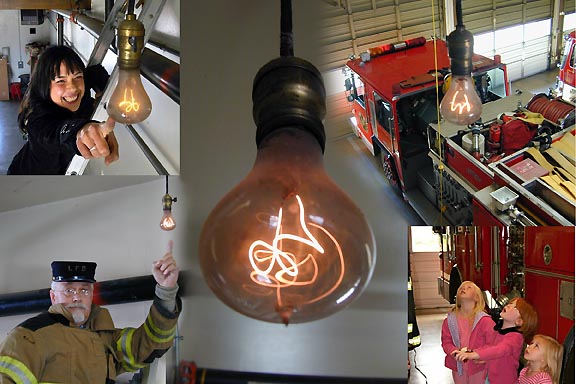The BBC has announced that the environment isn’t green at all. It’s white. Who knew? I am waiting for Green Anglicans to change it’s name.


The BBC has announced that the environment isn’t green at all. It’s white. Who knew? I am waiting for Green Anglicans to change it’s name.

The size of the earth is 0.000000000000000000019% of that of the entire universe, a fact that goes to show that mainline denominations are not nearly as inclusive as they would have us think. They are only praying for the earth, leaving the rest of Creation to fend for itself.
No matter; much as I dislike pollution as much as the next man, it seems fairly obvious to me that the church has made an idol out of environmentalism, the catchphrase used to conceal the real agenda of wealth redistribution, an activity near and dear to the hearts of liberals in every denomination.
No right-thinking liberal believes that God actually answers prayer, of course – that’s why we needed the Paris get-together on climate change last year, when the world’s elite flew their private jets across half the world to tell the rest of us we are using too much gas in our cars.
Entropy is causing the universe to run down. Eventually all activity will end – even Anglican clergy having conversations, hard to believe, I know – and the universe will end up motionless and dead in thermodynamic equilibrium at a few degrees above absolute zero. In spite of the combined best efforts of Al Gore, the Pope and Fred Hiltz.
Meanwhile, to take up the slack left by the negligent environmental department of the World Council of Churches, I suggest we all start praying for the black hole over-population in the vicinity of SAGE0536AGN. It’s very worrying.
To end on a positive note: according to Revelation 21, God will reverse entropy and remake the universe. The only problem is, mainline churches no longer believe the Bible.
From here:
Christians around the globe are uniting in a World Day of Prayer for Creation September 1 – a move which was started by the spiritual leader of the Orthodox churches. The day of prayer – and the Season of Creation that runs from today to the Feast of St Francis of Assisi (4 October) – was launched by the Ecumenical Patriarch Dimitrios in 1989. Last year Pope Francis called on Catholics to join in; and the Anglican Consultative Council – while not specifying any particular period – has repeatedly called on Anglican Provinces to set aside a liturgical season of prayer for creation and the environment.
[……]
The general secretary of the World Council of Churches, the Revd Dr Olav Fykse Tveit, said: “As Christians, we have hope. We believe God does not abandon creation and that we ourselves can become beacons of that hope by sowing the seeds of a different future.
He called on Christians worldwide to pray together for “God’s beautiful work” and also to take practical action, by calling on governments to ratify the last year’s Paris agreement on climate change.
Japanese Anglicans want to ban generating electricity using nuclear power.
From here:
On the fifth anniversary of the Great Eastern Japan Earthquake of 11 March 2011, the Anglican Church in Japan is reissuing its call for a world without nuclear power plants.
The earthquake and subsequent tsunami caused devastation – claiming 15,893 lives, with 2,572 still missing – and triggered a nuclear disaster, with meltdowns in three reactors at the Fukushima Nuclear Power Plant.
A 20km area around the power plant remains off limits due to contamination – and residents outside the exclusion zone are living in fear of radiation poisoning.
Having worked with survivors of the disaster, the Nippon Sei Ko Kai (NSKK, Anglican Church in Japan) is calling on the Anglican Communion to join its call to put a stop to nuclear power.
Anglicans everywhere else want to ban generating electricity using fossil fuels.
The most troubling aspect of all this is: with only useless windmills and solar power at his disposal, how is Fred Hiltz going to ignite the leaves for his mandatory monthly smudging ceremony?
The problem with electric cars is that their batteries run flat after driving about 65 miles and they take 8 hours to recharge. But there is a solution:
From here:
An astronaut has many things to worry about – the safety of the mission, the claustrophobic surroundings and the loneliness of the venture.
But now, they have one more thing to worry about – flatulence.
As humans produce two flammable gases – hydrogen and methane – which ignite when accumulated in an enclosed space and can ignite astronauts are potentially at risk as they are cooped up in their spacecrafts.
Some imaginative plumbing, a trunk full of baked beans and you can drive across the continent – or fly to the moon.
Those who need to go even further can install one of these extra large tanks in the passenger seat:

It isn’t an easy job to further reduce the election chances of the Halton Family Coalition candidate but, with a few well-chose words, Tony Rodrigues proved himself up to the daunting task. There are many reasons for suspecting that the received dogma on global warming is incorrect, so why did Rodrigues have to support an even less plausible theory?
From here:
Family Coalition candidate Tony Rodrigues got the panel off to a unique start stating he does not believe in climate change, but feels the severe weather irregularities around the globe are due to a large dam in China is [sic] tilting the earth off its axis.
The dam does have the potential for increasing the length of day by 0.06 microseconds – around the same length of time Rodrigues spent pondering his environmental platform – but earthquakes have a far greater effect on the earth’s rotational speed.
At the behest of the green gestapo, Canada is set to ban the incandescent light bulb in 2012. The only problem is that, as often happens when the government meddles in things it shouldn’t, the result is likely to backfire and increase pollution not reduce it – mercury pollution in this case.
From here:
The Canadian government’s new energy-efficiency rules for light bulbs are fast approaching implementation, but no national standards exist to deal with the toxic waste they are expected to create.
The federal government admits the patchwork of regulations for disposing of compact fluorescent bulbs, or CFLs, is one of the unintended consequences of rushing in the new energy-efficiency regulations.
Environment Minister Peter Kent said he was surprised to hear from CBC News that the provinces — which are responsible for setting garbage disposal regulations — were at different levels of preparation for the new light-bulb regulations, which begin Jan. 1, 2012.
Traditional incandescent bulbs won’t meet the energy-saving rules. Kent said a national technical group is working out a system for recycling the mercury-containing bulbs that consumers will buy instead.
“If you’re finding a patchwork of understanding, I’ll make sure that we issue communications to my provincial colleagues and suggest that they come up to speed,” Kent said.
But experts in mercury pollution and recycling say they are unimpressed, and they worry the mercury will end up in municipal garbage dumps.
“They don’t really have a plan,” said Dana Silk, the general manager of Envirocentre, an Ottawa non-profit organization that works to reduce greenhouse gas emissions by delivering energy-efficiency goods and services.
Even worse is the fate suffered by the poor suckers who make CFLs:
From here:
WHEN British consumers are compelled to buy energy-efficient lightbulbs from 2012, they will save up to 5m tons of carbon dioxide a year from being pumped into the atmosphere. In China, however, a heavy environmental price is being paid for the production of “green” lightbulbs in cost-cutting factories.
Large numbers of Chinese workers have been poisoned by mercury, which forms part of the compact fluorescent lightbulbs. A surge in foreign demand, set off by a European Union directive making these bulbs compulsory within three years, has also led to the reopening of mercury mines that have ruined the environment.
The longest lasting light bulb in existence is an incandescent one: the Centennial incandescent light which has been burning for 109 years. The only thing that could put it out is the government.
From the BBC:

In a somewhat unusual research project, scientists have found that sperm whale faeces may help oceans absorb carbon dioxide from the air.
Australian researchers calculate that Southern Ocean sperm whales release about 50 tonnes of iron each year.
This stimulates the growth of tiny marine plants – phytoplankton – which absorb CO2 during photosynthesis.
No BS here, just WS.
Has been lit for 109 years.
The improved incandescent lamp, invented by Adolphe A. Chaillet, was made by the Shelby Electric Company. It is a handblown bulb with carbon filament. Approximate wattage-4 watts. Left burning continuously in firehouse as a nightlight over the fire trucks. For some research test results on a sister bulb at Annapolis follow this link.

The upper limit of the lifespan of one of these:

is 15,000 hours or, if left on, around 1.71 years; it would take 63 fluorescent bulbs to provide light for as long as the Shelby Bulb has – and it is still going.
So the question is, over 100 years, does it take more energy to make and light one Shelby Bulb or make and light 63 fluorescent bulbs and safely dispose of 62 of them?
I suspect the answer is 63 fluorescent bulbs although, admittedly, at 4 watts, the Shelby Bulb would be a little dim.
Climate fascism at the UN:
Secular dictionary definition of “Gospel”: The proclamation of the redemption preached by Jesus and the Apostles, which is the central content of Christian revelation.
Rowan Williams’ definition of “Gospel”: Less carbon dioxide.
Some 3,000 Christians gathered in Westminster for an ecumenical service before joining tens of thousands of campaigners in a march through the capital today to call on the UK to take the lead at next week’s UN climate change summit in Copenhagen.
Dr Rowan Williams said the human race had until now not been very good news for creation, as he warned that the failure to tend to the health and wellbeing of creation was already having negative effects on the lives of the most vulnerable communities in the world.
He said: “We are to be bearers of good news for the world that God has made. Not for any one little bit of it, not any one community at the expense of others, not even for humanity at the expense of everything else in the universe. Good news for all of creation.